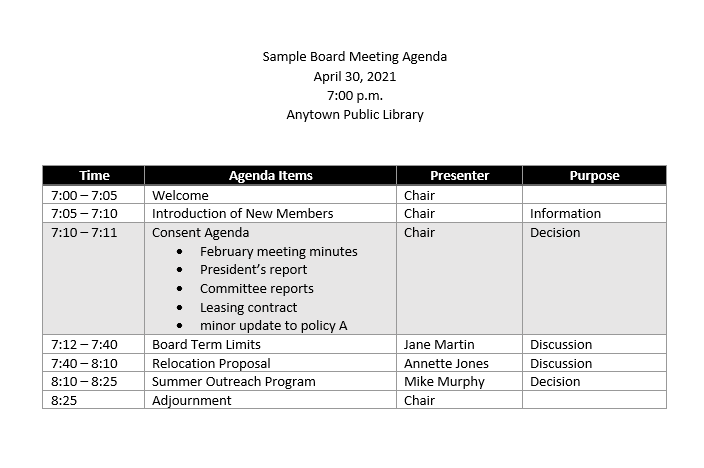Consider the Consent Agenda for More Productive Board Meetings

~ by Steve Yoder, Community Development Regional Educator, Purdue Extension
“My board started doing this a year ago, and we will NEVER go back to running meetings the old way.”
“I love it. Our meetings are much more efficient now.”
“I’m definitely going to bring this up to my board. We need to do this.”
These participants from Purdue Extension’s Community Leadership Program were talking about their experiences using—and learning about—a board meeting management tool known as the consent agenda. It’s a way to streamline your meetings by lumping all routine and non-controversial items together for approval as one line item. By doing so, it frees up the rest of the meeting for the discussion of other matters that would benefit from more in-depth conversations.
For example, a consent agenda can include the last meeting’s minutes, staff reports, minor changes to policies or procedures (for clarity), and routine contract renewals. All items within the consent agenda are voted on by the board in a single motion (see the example, below).

In advance of the meeting, all supporting documents related to the consent agenda are sent to the board members for their review, so that they are prepared to quickly vote on it, without discussion, during that part of the meeting (notice the amount of time given in the example). If a member wishes to move any part of the consent agenda to the regular agenda for further discussion, that is still possible and the opportunity to do so should be announced by the chair at the beginning of the meeting.
When I talk to board members who take part in our Community Leadership Program, I hear that community members are sometimes discouraged from serving on certain boards because they feel that their time is wasted in unproductive meetings. The consent agenda is one way to help ensure that those meetings, instead, are more efficient, productive, and engaging.



